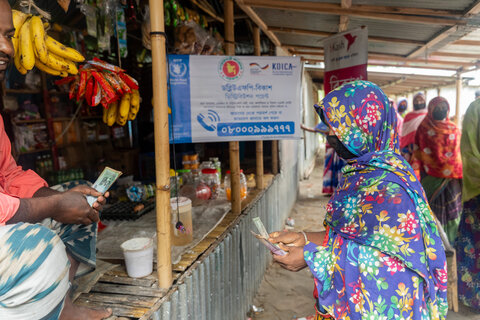Vital air service delivers life-saving assistance during COVID-19 pandemic
.jpg?itok=VzZkzwDa)
As the COVID-19 pandemic unfolded around the world in early 2020, international logistics and supply chains were soon suffering the consequences.
In the Pacific region, pandemic response measures prompted the closure of international borders and the cancellation of almost all commercial flights, making it impossible for Pacific governments and humanitarian organizations to move critically needed medical supplies such as Personal Protective Equipment, which were vital to preparedness and response efforts.
“The situation was desperate. National borders were closing and entire airlines were being grounded, leaving Pacific Island nations especially vulnerable,” said Jo Pilgrim, Director of World the Food Programme's (WFP) Pacific Multi-Country Office. “It quickly became apparent that there was a need for a humanitarian air service that could help protect the region from the worst effects of the pandemic.”
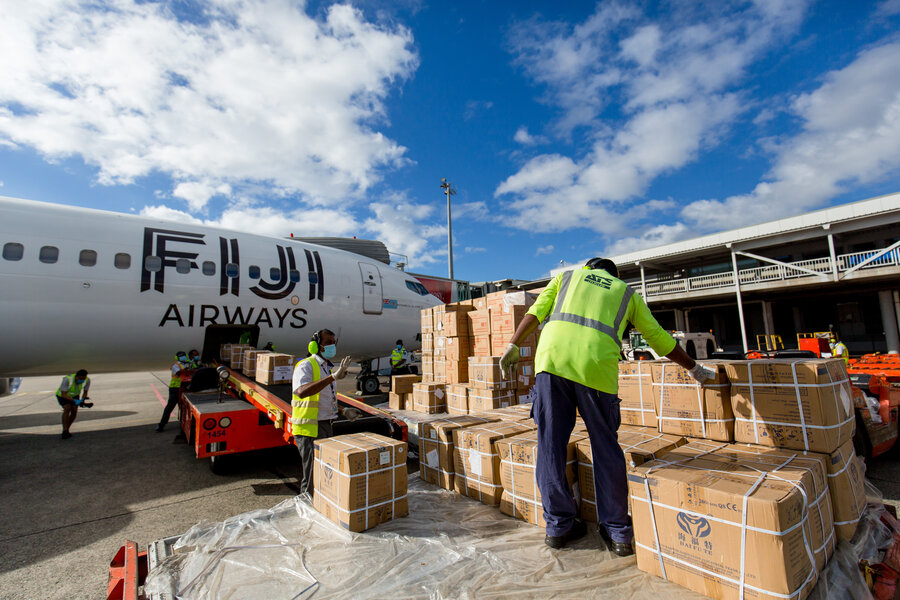
Over the past year, WFP’s Pacific Humanitarian Air Service has addressed this critical need, operating 30 flights around the region and transporting 250 metric tons of vital medical and relief cargo to 14 Pacific Island countries and territories. It has also transported 73 humanitarian personnel to the locations where they were needed.
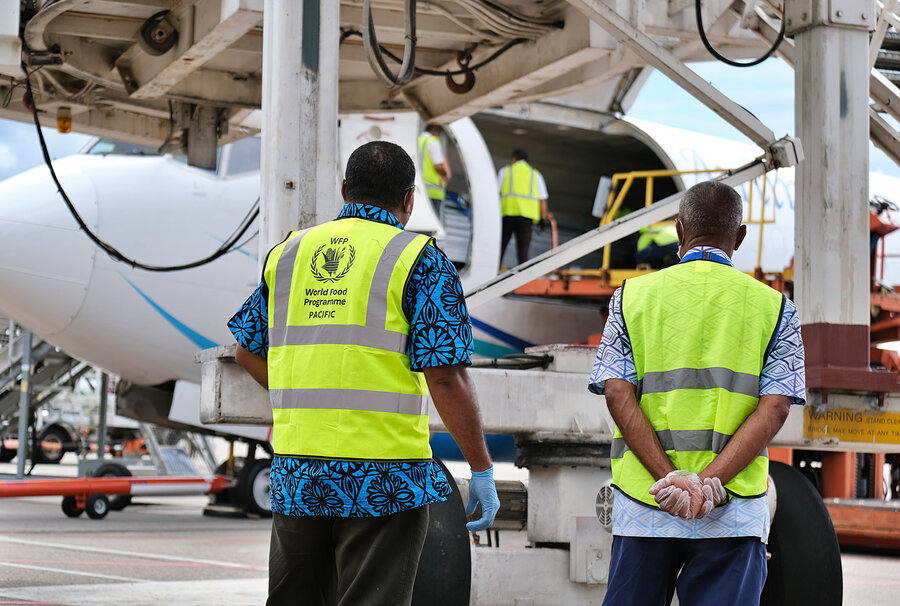
The Pacific Humanitarian Air Service was established as a temporary measure to provide air transport for the urgent movement of critical supplies and humanitarian personnel, until commercial aviation options became available again.
The service supports the work of the WHO-led Pacific Joint Incident Management Team for COVID-19, the Pacific Humanitarian Pathway for COVID-19, and the broader response efforts of the United Nations and the humanitarian community in the Pacific.
The Pacific Islands Forum Secretary General Henry Puna said: "The Pacific Humanitarian Pathway on COVID-19 was instrumental in providing the platform to transport much-needed medical and humanitarian supplies, experts and vaccines, using WFP assets to help the forum prepare and respond to the pandemic. There is no greater example of regionalism, multilateralism and working for the collective good of the Blue Pacific Continent."
Dr Akeem Ali, acting WHO Representative to the South Pacific, also spoke of the immense value of the service: “The Humanitarian Air Service, run by our friends and colleagues at WFP, has been instrumental in facilitating the World Health Organization’s COVID-19 response across the Pacific.
“With this support we’ve been able to get life-saving medical equipment and supplies to far-flung island nations, at a time when commercial flights have been difficult to arrange or non-existent.”
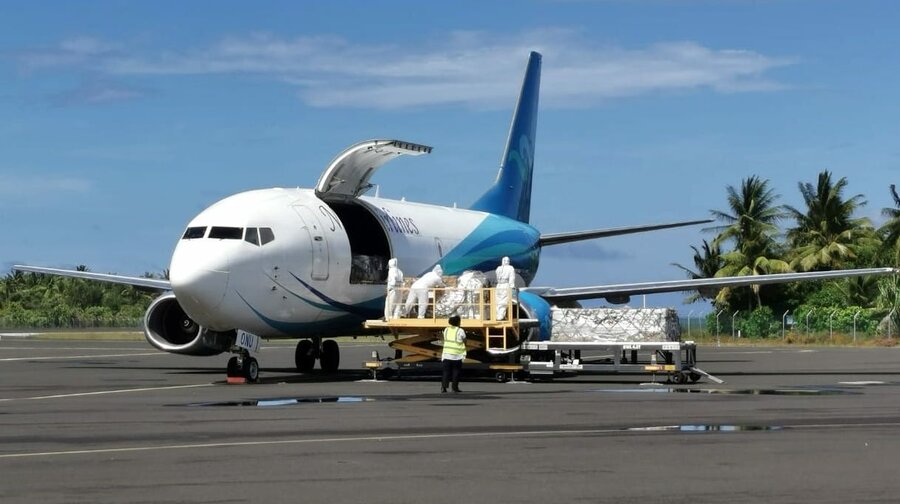
Dr Waqainabete, Fiji’s Minister for Health and Medical Services, said: “This timely and generous assistance has greatly assisted our health care professionals and health institutions, to safely and effectively deliver an enhanced public health response that helped trace and contain the transmission of the virus in our communities and protected the lives of our fellow Fijians.
“This support also speaks highly of Fiji’s strengthened collaboration with its international and regional development partners, and their commitment to support Fiji at this time of great need is highly commended.”
Originally planned as a three-month operation, the Pacific Humanitarian Air Service continues to demonstrate its value to the Pacific community.
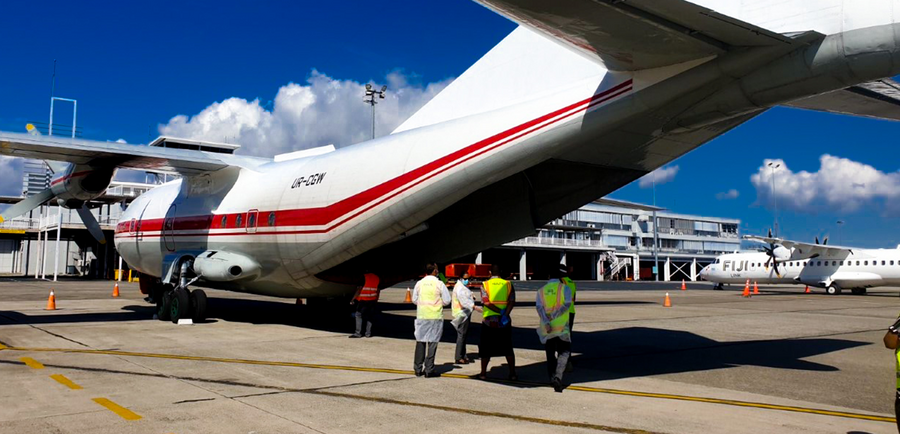
“While some commercial airlines are now operating freight and repatriation flights, we are still far from the pre-pandemic level of commercial air services and there are still countries without regular flights,” added Jo Pilgrim. “WFP is pleased to be able to continue to provide this crucial support to the region, when and where it is needed.”
Collaboration with partners has been key to the air service’s success, and WFP continues to work closely with organizations and governments responding to the COVID-19 pandemic in the Pacific.
It is due to the generous support of the Government of Australia, the European Union and the United States Agency for International Development that WFP has been able to provide rapid and timely transport of aid and personnel across the Pacific, during a critical period in the region’s history.

